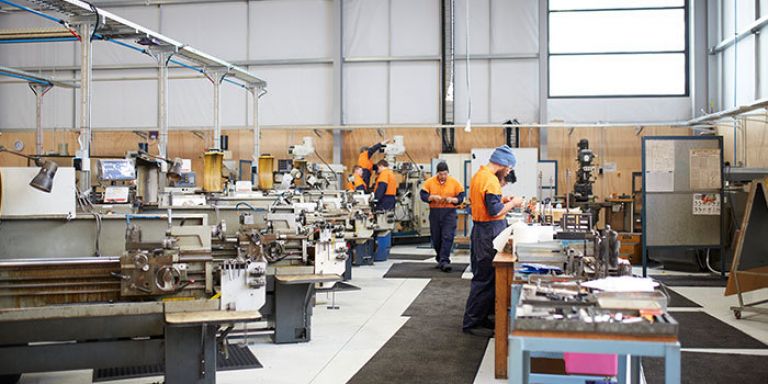Programme highlights
Are you interested in the automotive industry?
With a combination of in-class and online learning, this qualification will prepare you for a career in automotive engineering, working on cars and trucks to heavy industrial machinery.
You will gain a solid foundation with the skills, knowledge and capabilities to work safely using tools and equipment in automotive engineering such as engines, driveline systems, electrical and electronic brakes, steering and suspension systems.
With a shortage of qualified mechanics in New Zealand, your skills will be in demand.
Aspects of this programme are physically demanding, please talk with an Ask Me! agent if you face fitness or mobility challenges.
You may be required to complete literacy and numeracy assessments as part of this programme.
Meet the team
Entry requirements
General
Open entry for domestic students
There are no academic requirements that need to be met to enter this programme.
English language entry requirements
You will need English language competence to undertake this programme which is taught and assessed in English (an assessment may be required if your first language is not English).
Give yourself credit with Recognition of Prior Learning (RPL)
Did you know you can use the knowledge and experience you already have to your advantage?
Your previous work experience and on-the-job skills, volunteering, professional development, and other providers’ qualifications can be recognised as prior learning, matched against credits in our courses, and put towards your qualification – potentially saving you money and possibly helping you to complete your qualification faster Learn more.
Programme structure
You will need to complete the below four courses (120 credits):
201.326 Automotive workshop safety, tools and equipment (25 credits)
You will learn safety, first aid, fire and safety procedure, chemicals, gas, hazardous materials.
- Safe working practices, good work habits, policies and procedures, PPE, warning notices, precautions
- Industry engineering tasks, tools and equipment, may include but is not limited to: spanners, sockets, screwdrivers, torque wrench, locking devices, bolts, nut studs, power drill, drill press, cutting fluid, taps, dies, die nuts, grinder, welding
- Tools for electrical and electronic service and repair
- Safe working practices for working with electronics, including protecting electronics.
201.327 Automotive engines and drivelines systems (30 credits)
You will learn about Vehicle servicing and component replacement.
- Petrol and diesel engines: Two-stroke, four-stroke engines, power, torque
- Drivelines: Driveshafts, drive axle, joints and bearings, VIRM requirements, final drives, differential mechanisms
- Transmission, manual and semi-automatic operation, and construction
- CVT gearboxes
- Cooling systems, cleanliness pH, freeze protection, flushing system, refill, bleeding
- Cambelts
- Lubrication: Oils, grease, lubricants, and specifications
- Air-conditioning: Refrigeration, compression, condensing, expansion, evaporation
- Clutch
- Intake systems, induction systems, emissions/exhaust.
201.328 Automotive electrical and electronic systems (40 credits)
May include, but is not limited to:
- Ignition systems
- Electronic fuel injection
- Batteries
- Basic Electrical theory
- Hybrid electric and battery electric vehicles
- Electrical principles, testing and repair of automotive electrical circuits
- Automotive charging and starting systems
- Automotive lighting
- Airbags/seat belts
- Diesel injection/fuel systems.
201.329 Automotive brakes, steering and suspension systems (25 credits)
- Wheels, tyres, wheel balancing
- Brake system: May include but not limited to: bleeding hydraulic brakes, park brake, service brake, brake lines, brake cylinders, pads, shoes, rotors, drums, Disc brakes, Drum brakes, brake fluid, air braking systems, heavy commercial brake systems
- Steering and suspension: may include but is not limited to: components, manual, power-assisted, four-wheel/all-wheel systems, front and rear suspension, ball joints, bushes, linkages, wheel bearings, struts, shock absorbers, springs, control arms, stabiliser bars, control arms heavy steering and heavy suspension.
Do you want to study a single course, without enrolling into the full programme?
Courses within some of our programmes may be offered as an individual Certificate of Proficiency (COP). Programme entry requirements and course fees apply. For more information, please speak to our friendly Ask Me! team.
Career opportunities
Graduates of this qualification will have the skills and knowledge to work in an entry level position in any area of the automotive industry. For potential salaries visit careers.govt.nz.













